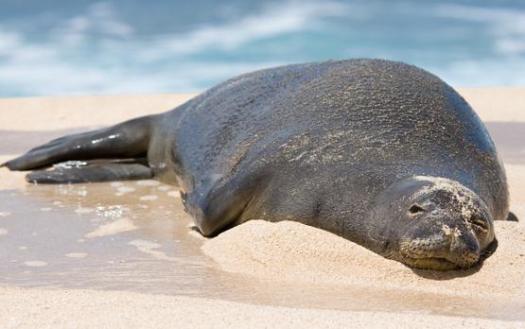TED Prize winner Sylvia Earle inspired all of us to care deeply about the ocean and to think deeply about how we can protect it. But the ocean is vast and the challenges are numerous. Where do we begin to understand the complex beauty that is the ocean? One great place to start: The new mission-blue.org. It’s a home for ocean news and initiatives, a place to elevate public awareness about critical ocean issues and inspire support for the people, organizations and initiatives making a difference in the field.
Stories range from history to entertainment to research. The stories are written not only to raise concern and alarm but to help concerned citizens understand what’s happening in response.
Just yesterday, Mission Blue posted a solution-oriented story about monk seals, one of the most critically endangered marine mammals in the world. From the story:
In Hawaii, scientists have adopted a hands-on approach. Sharks that have developed behaviors for attacking pups in nearshore waters are targeted for removal. Seals found entangled in debris are freed, while juveniles lost from their mothers are reunited. Overly aggressive males responsible for the deaths of other seals have been removed from the population, with one recently transported to a research facility in California where he will participate in non-invasive research that will enable scientists to study the animal’s metabolism and other basic biological processes …
Perhaps the most novel method proposed, however, is temporary translocation. Though the technique hasn’t been tested yet, NOAA researchers plan on moving newly weaned female pups — the more important sex for population recovery — from the remote Northwestern Hawaiian Islands where they have been doing poorly to the main Hawaiian Islands where young seals seem to have a better survival rate. The seals that are translocated will be closely monitored until they’re about 3 years old. after which they will be returned to the place of their birth. Walters said that the experiment would start modestly, with perhaps 10 or fewer seals initially translocated until it can be determined that this method is viable.
Researchers in the Mediterranean are adopting a more human-focused strategy. The World Wildlife Fund in Greece and other nongovernmental organizations are working to raise awareness in the area about monk seals and other sea issues. They’re also pushing the Greek authorities to make seal protection more of a priority by enforcing a firearms ban, for example.”
The site is updated daily with fresh ocean news. Explore http://mission-blue.org/
— Casson Rosenblatt

Comments (2)
Pingback: Dive into ocean news on mission-blue.org - The Society – Entrepreneurs Epicentre